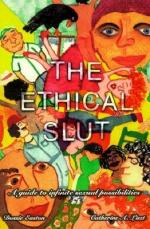
|
| Name: _________________________ | Period: ___________________ |
This test consists of 15 multiple choice questions and 5 short answer questions.
Multiple Choice Questions
1. Which of the following is NOT a purpose of support listed in the resources?
(a) To help subgroups get connected.
(b) To help solve problems.
(c) To help the bisexual community.
(d) To help the asexual community.
2. According to the authors, do people believe the lies of a masturbation fantasy comparatively more or less than viewers believe the lies of a movie or readers believe the lies of a novel?
(a) They believe them more.
(b) They believe them equally.
(c) They believe them less.
(d) They don't believe them any more or less.
3. Which of the following is one of the perils of sex for women mentioned in the book?
(a) Fear.
(b) Disease.
(c) Pain.
(d) Boredom.
4. The book states that "televised sex" is the most common variant of what?
(a) Private sex.
(b) Romanticized sex.
(c) Public sex.
(d) Institutionalized sex.
5. In the authors' words, what amount of people lie to themselves every time they masturbate, in the form of fantasies about themselves and some involvement with others?
(a) All people.
(b) Many people.
(c) Few people
(d) No people.
6. In the book, taking precautions for contagion with promiscuity is likened to what?
(a) The plague.
(b) Rabies.
(c) The flu.
(d) Shingles.
7. In the book's example of the couple that wanted to attend a sex party together, they wanted to be what?
(a) Hedonistic.
(b) Masochistic.
(c) Left alone.
(d) Exhibitionistic.
8. According to the authors, why is it helpful to know and be truthful up front about what one wants?
(a) To minimize sexual activity.
(b) To minimize emotional consequences.
(c) To maximize hurtful behavior.
(d) To maximize sexual monogamy.
9. In the reality and possibility of experiencing abundance proposed by the authors, all of the following are absent, EXCEPT?
(a) Severity.
(b) Competition.
(c) Starvation.
(d) Resources.
10. The authors' "favorite sexual fantasy" is what?
(a) Physical Abundance.
(b) Sexual Abundance.
(c) Orgasmic Abundance.
(d) Partner Abundance.
11. According to the authors, which of the following is NOT effectively prevented by monogamy?
(a) Marital drama.
(b) Contagion.
(c) Illness.
(d) Risky pregnancy.
12. What do the authors detail as sometimes including live sexual activity as a staged or intentionally public spectacle?
(a) Sex clubs.
(b) Sex dates.
(c) Sex parades.
(d) Sex shops.
13. Which of the following is NOT a component of group sex mentioned in the book?
(a) Dyads.
(b) Asexuals.
(c) Trisexuals.
(d) Triads.
14. In the wrong environment, even people who really like wild sex stories might feel all of the following ways, EXCEPT for which one?
(a) Offended.
(b) Caught off-guard.
(c) Embarrassed.
(d) Uninterested in reading at another time.
15. When there is no regulation against watching, the authors state that spectating is considered to be what?
(a) Acceptable.
(b) Anachronism.
(c) Voyeurism.
(d) Inappropriate.
Short Answer Questions
1. The authors do not agree with all public policies, and find themselves frustrated by what?
2. According to the authors, a natural feature of sex parties enables many people their first opportunity to do what?
3. Which of the following is NOT what the authors strongly encourage people to be regarding their love for others?
4. Most sex on television doesn't actually take place. How is it represented?
5. Which of the following is the final step in the chapter on "Health"?
|
This section contains 535 words (approx. 2 pages at 300 words per page) |

|




